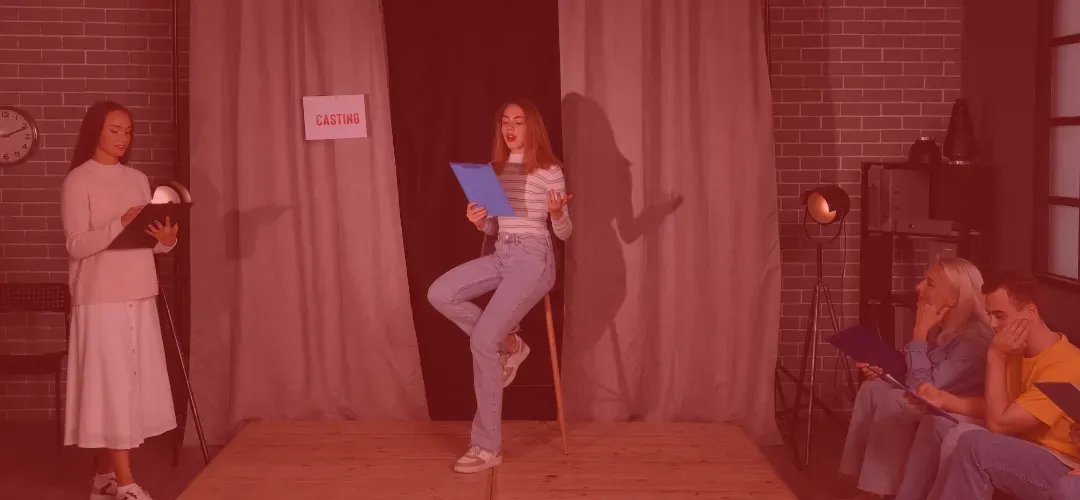What Actors Can Do During a Writer Strike WGA?
A major issue in America right now is the future Actors Strike that is recommended by the SAG AFTRA to its members against the Alliance of Motion Picture and Television Producers. A few of you might be curious. What an actors’ strike is, and what causes this?
An actors’ strike is when actors in the entertainment industry collectively stop working to negotiate better conditions, pay, or other contract terms. They refuse to audition, rehearse, or film for TV shows, movies, or commercials. This affects the release of new content, causing delays and financial losses for production companies.
Let’s delve into a comprehensive exploration of all the factors that contribute to these strikes with the causes, the professional life of the actors, and what actors can do during an actors’ strike. Upon delving into the contents of this article, you will gain a profound grasp and complete comprehension of how the Writers Guild of America bears primary responsibility for the ongoing strikes and actively promotes actors’ participation in these strikes.
SAG-AFTRA and its Negotiation Reasons
SAG-AFTRA, which stands for Screen Actors Guild - American Federation of Television & Radio Artists, recommended its members vote to authorize an actor’s strike. A big question that arises now is why SAG is recommending such strikes and what are the reasons behind it.
There are specific reasons behind it:
- The prime reason is that SAG wants to address certain issues and negotiate the TV/Theatrical Contract with the AMPTP (Alliance of Motion Picture and Television Producers) starting June 7, 2023.
- Two key concerns prompting this recommendation are the decline in residuals (payments) from streaming services and the escalating use of artificial intelligence (AI) in the entertainment industry.
- The decline in streaming residuals means that actors receive lower compensation for their work when their performances are streamed on platforms like Netflix, Hotstar, Amazon Prime, and others.
Strikes happen due to disputes over compensation, royalties, working hours, safety, or contract terms. These bring attention to actors’ working conditions and highlight the need for fair treatment. SAG aims to address this issue and ensure proper compensation by supporting writers’ strikes.
Brief History & Cause Behind the WGA Strike
WGA (Writers Guild of America) is a joint of two American labor unions. They represent the writers in the following areas:
- Films
- Television
- Radio
- Online Media
Recently WGA went on a writer’s strike, which is a collective action in protest against the AMPTP. The Alliance of Motion Picture & Television Producers (AMPTP) is a dynamic trade association entrusted with the task of negotiating comprehensive contracts for various industry-wide guilds and unions, including renowned unions like WGA & SAG-AFTRA. They represent broadcast television networks, the Hollywood studio systems, and other streaming services, including Amazon, Netflix, Paramount, and Sony, among others.
The WGA and the SAG have accused the AMPTP of creating poor working conditions for writers in the following ways:
- Hiring writers at low wages
- No guarantee of employment
- Use of AI instead of writers
- Creating instability
- Separation of the writers guild from the production house
The Nexus Between Actors and The Writers Guild of America (WGA)
The partnership between actors and the WGA forms the backbone of the entertainment industry. Actors breathe life into the narratives crafted by writers, rendering an enriching tale that captivates audiences. The alliance between actors and the WGA is crucial for mutual success, the potency of storytelling, and the overall quality of productions.
The Ripple Effect of a WGA Strike on Actors
Writers’ strikes send seismic waves across the acting community. In the absence of fresh scripts, the production of new content drops, curtailing opportunities for actors. A strike culminates in a standstill for auditions, filming, and production, causing substantial delays in the premiere of films and TV shows.
SAG-AFTRA & WGA: Advocacy & Negotiations with AMPTP
Both the Screen Actors Guild‐American Federation of Television and Radio Artists (SAG-AFTRA) and the WGA are key players in advocating for the rights of actors and writers, respectively.
Their collective negotiations with the Alliance of Motion Picture and Television Producers (AMPTP) underscore the importance of equitable working conditions, fair compensation, and respect for their creative contributions. The ability of AI to imitate human expressions and generate scripts raises concerns about the integrity of creativity and the job stability of professionals in these fields.
The AMPTP is exploiting this situation to its advantage. Consequently, the members of the WGA are currently on strike to protest against these injustices. Such negotiations are pivotal in shaping the future of the entertainment industry, ensuring that the rights of both actors and writers are protected amidst the shifts in the landscape.
Actions Actors Can Take During WGA Strike
Pursuit of alternative income sources
Here’s a dynamic set of action points to help you ride out the storm, keeping your skills honed and your bank balance healthy.
Build a Striking Demo Reel:
Your demo reel is your visual resume, showcasing your range and versatility. Use the downtime to fine-tune or create a powerful
actor demo reel that encapsulates your talent and abilities. This can be shared with casting directors, agents, and producers once the strike ends, placing you ahead of the competition. Furthermore, it serves as a potent tool for showcasing your skills on social media platforms during the strike.
Delve into Voice Over Work: As an actor, your voice is a potent tool. Exploring opportunities in voice acting, such as animated movies, video games, advertisements, audiobooks, or documentary narrations, could unlock a reliable revenue stream. It’s a win-win situation: you capitalize on your vocal chops while still staying within the bounds of the strike.
Conduct Acting Workshops: Who better to teach acting than actors themselves? Hosting acting classes, leading workshops, or providing private coaching to budding actors not only brings in extra cash but also keeps you engaged with your artistry. It’s about passing the baton and nourishing the industry that gave you so much.
Explore Independent or Non-Union Productions: Respecting the strike’s principles is paramount, but this doesn’t mean you need to be completely off-camera. You can still seek roles in independent films or non-union productions. This approach allows you to sharpen your skills, cultivate relationships with filmmakers, and sustain your industry presence.
Master the Art of Script Writing:
Here’s an idea - why not flip the script, literally? Use this time to learn scriptwriting. This can help you appreciate the other side of the industry while allowing you to create engaging narratives that could serve as future projects.
Network Vigorously: Networking is key. Attend events, join online forums, or host virtual meet-ups to connect with like-minded people. Expanding your professional circle during this time could result in more opportunities post-strike.
Embrace Social Media:
In the digital age, maintaining a strong online presence is crucial. Utilize the captivating force of social media networks to flaunt your exceptional talents to the world., engage with fans, and promote any projects you’re allowed to work on during the strike. This will ensure you remain in the spotlight, even during the downtime.
Self-Care:
Last but not least, prioritize self-care. The strike is an optimal time to relax, recharge, and reinvest in your health and well-being.
It’ll ensure you come back stronger, ready to seize the opportunities that will surely follow the storm.
Legalities & Limitations: Understanding an actor’s role during the writer’s strike
Actors need to be aware of their rights and obligations during participating in writers’ strikes. Here are some key points to consider:
Strike guidelines: Actors should familiarize themselves with the specific guidelines set forth by the Writers Guild of America (WGA) and Screen Actors Guild (SGA). This includes understanding which projects are covered by the strike and what activities are prohibited or allowed.
Ethical considerations:
While actors may be eager to continue working and generating income during a strike, it is crucial to maintain ethical standards. Engaging in work that undermines or violates the purpose of the strike harms the collective efforts of the industry and fellow union members. Actors should act responsibly and respect the decisions made by their respective unions.
Staying informed: It is crucial for actors to stay updated on the progress and developments of the strike. They should regularly check official union websites, attend meetings or seminars organized by the unions, and engage in discussions with fellow actors to stay informed about the latest news and strategies.
Conclusion
The impact of a writer’s strike on the entertainment industry can be significant, presenting both challenges and opportunities for actors. While the absence of fresh scripts poses a temporary setback, resourceful actors can seize this moment as a catalyst for creativity and personal growth by engaging in a range of proactive measures, such as honing their improvisational skills.
The writer strike allows actors to push their boundaries, expand their artistic horizons, and contribute their unique perspectives to the creative landscape. By embracing this period as a chance for innovation and resilience, actors can harness their talent, dedication, and passion to ensure that the show indeed goes on, even in the face of adversity.
Pro Tip: If you are an actor and want to build an impressive demo reel for portfolio,
Click Here.












